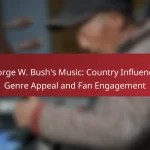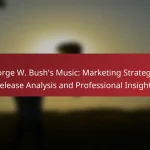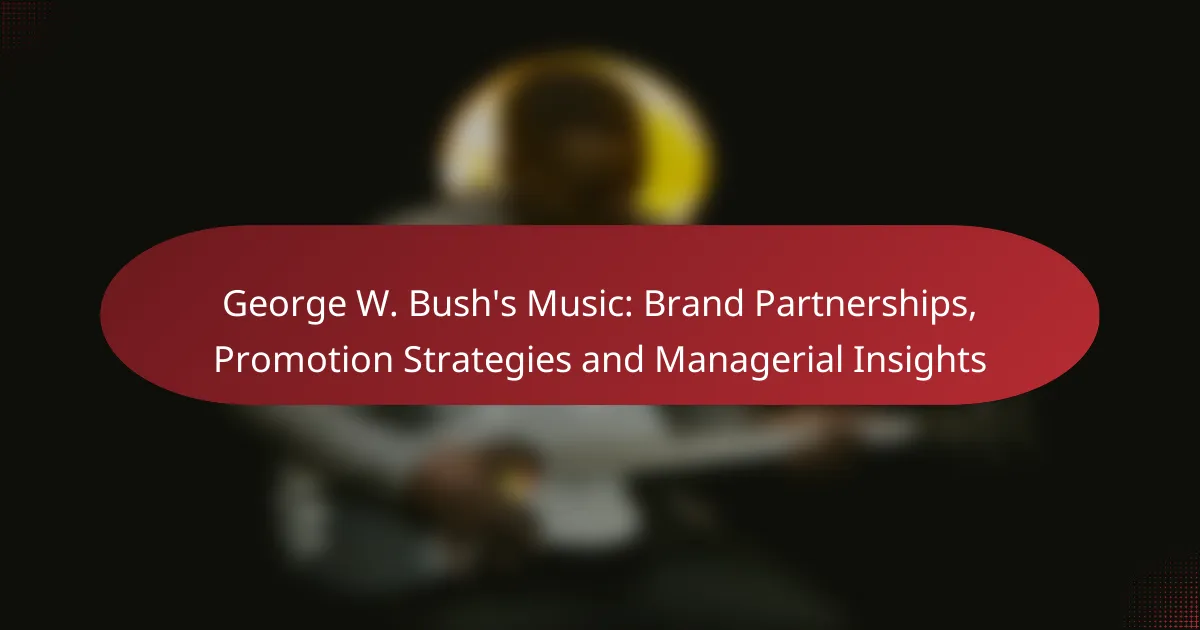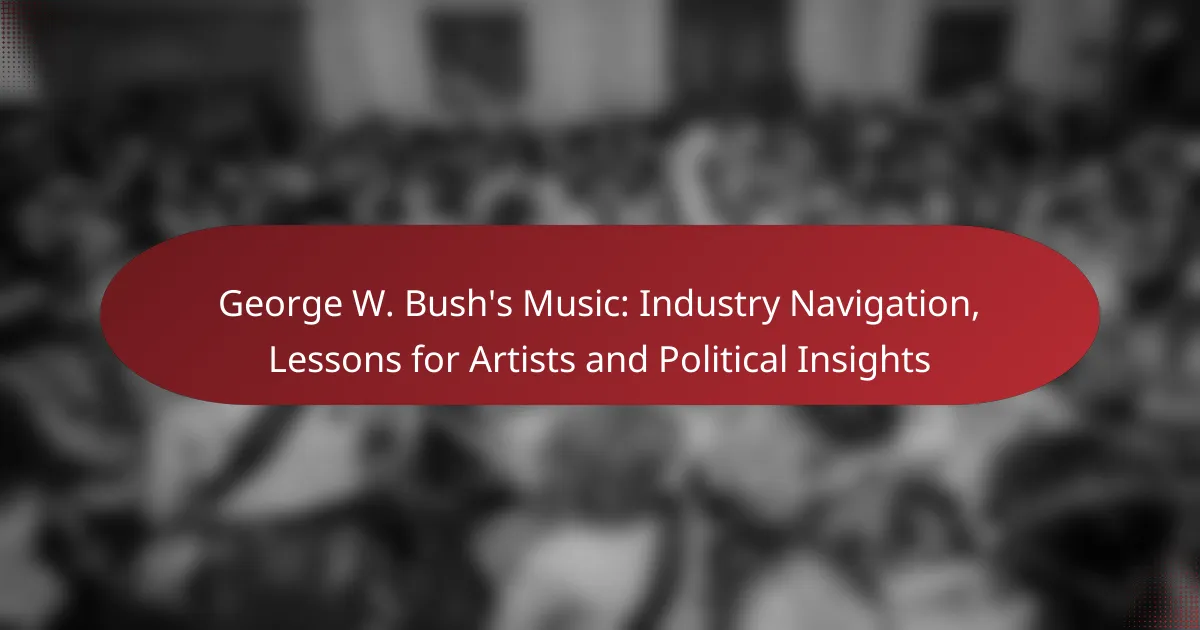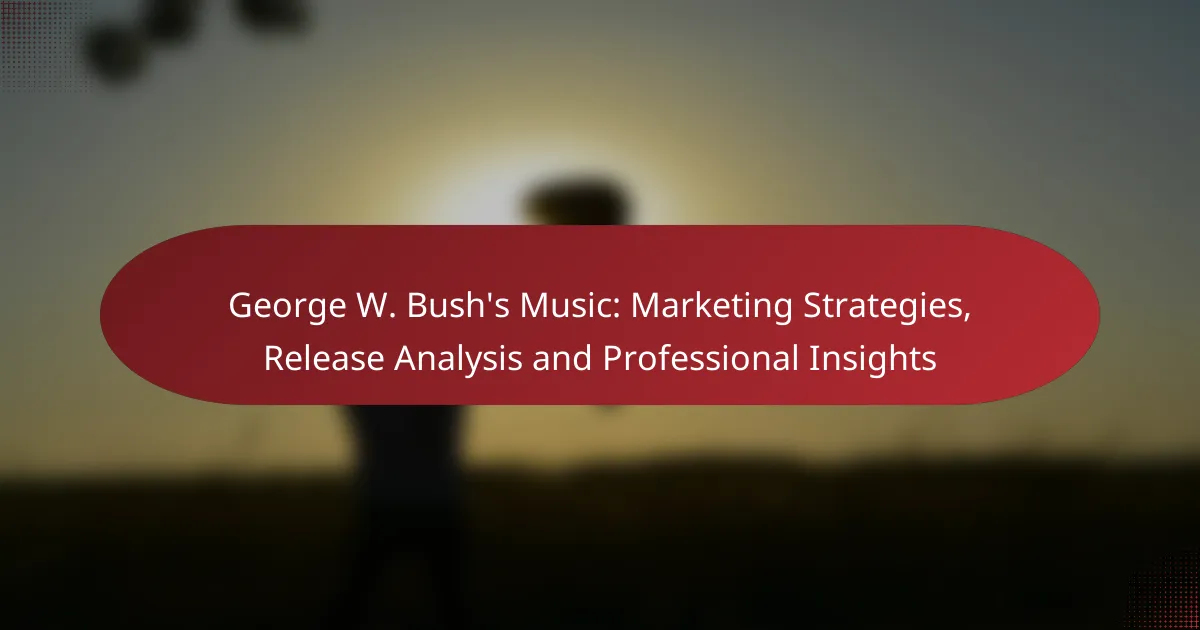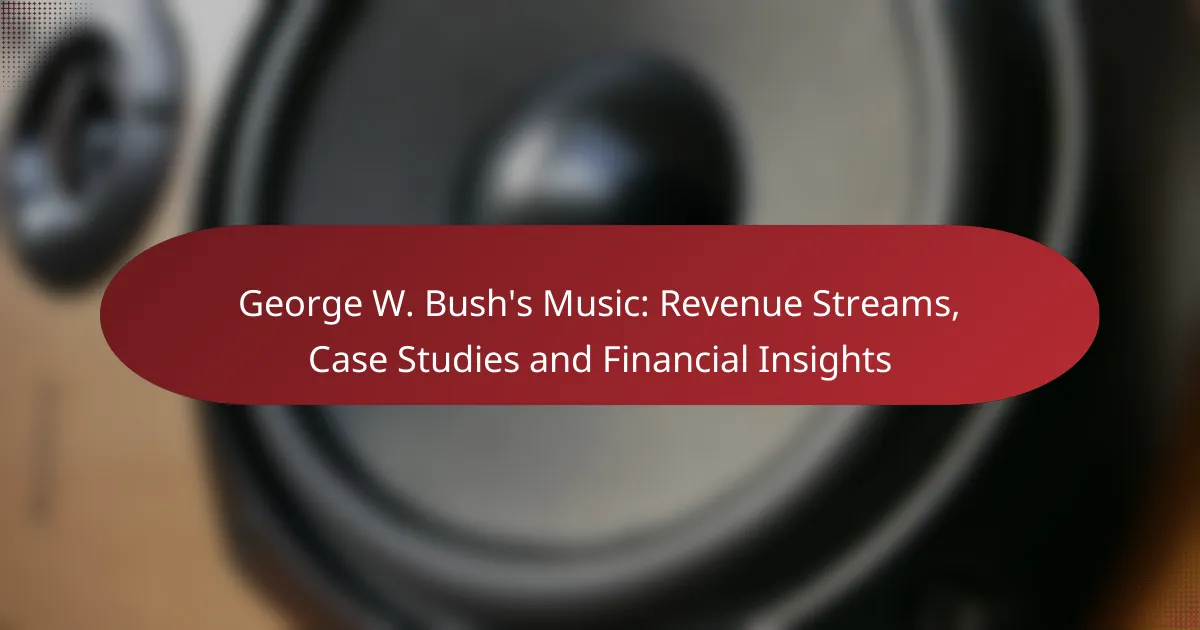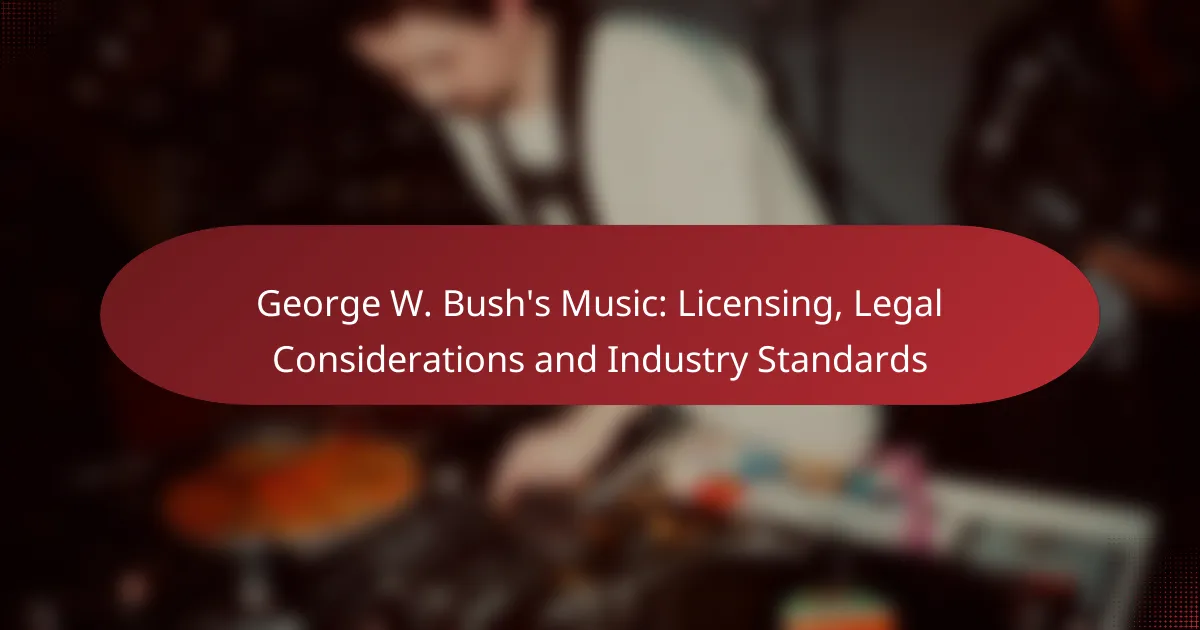George W. Bush adeptly integrated music into his brand strategy, forging partnerships that bolstered his public image and campaign outreach. By collaborating with artists and employing diverse promotional tactics, he established a compelling link between his political persona and the music industry. Insights from his initiatives underscore the significance of aligning music with brand messaging to enhance visibility and audience engagement.
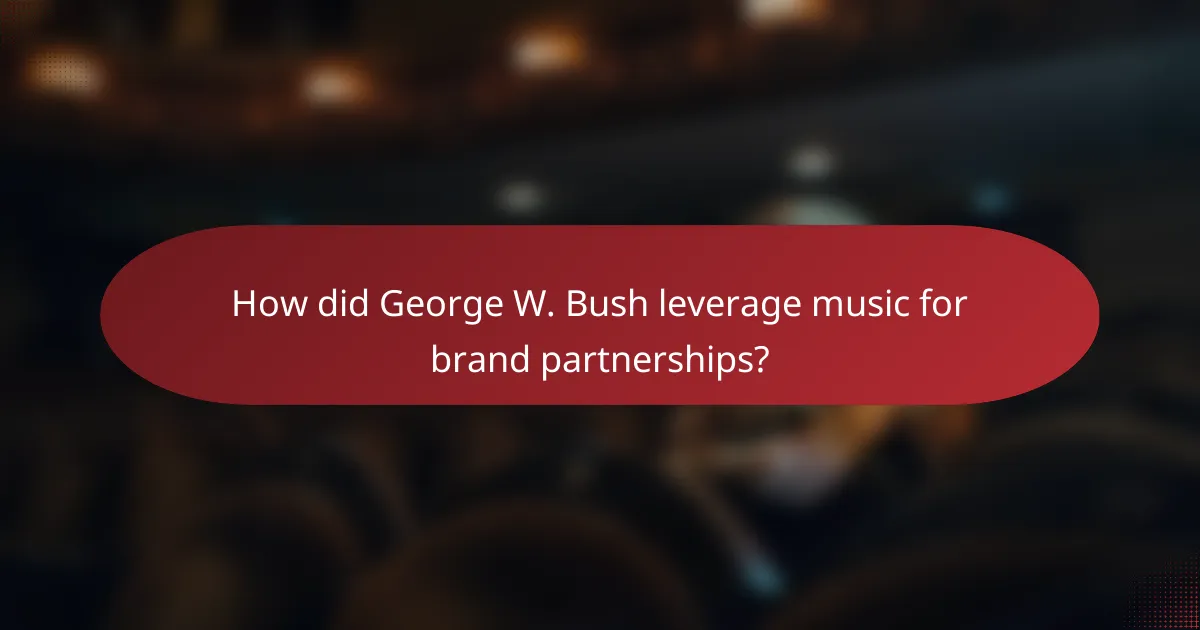
How did George W. Bush leverage music for brand partnerships?
George W. Bush effectively utilized music to forge brand partnerships that enhanced his public image and campaign outreach. By collaborating with artists and leveraging music in various promotional strategies, he created a strong connection between his political brand and the music industry.
Collaboration with country artists
George W. Bush’s collaboration with country artists played a significant role in shaping his brand. Artists like Toby Keith and Alan Jackson publicly supported him, aligning their music with his political messages. This partnership not only resonated with his core voter base but also helped to humanize his image as a relatable candidate.
These collaborations often included performances at rallies and events, which amplified his visibility and created a festive atmosphere that appealed to supporters. The use of country music, a genre popular among his constituents, reinforced his connection to traditional American values.
Partnerships with major record labels
Bush’s administration formed strategic partnerships with major record labels to promote his initiatives and campaigns. These partnerships facilitated the distribution of music that aligned with his political themes, effectively reaching a broader audience. For instance, promotional albums featuring patriotic songs were released to coincide with key campaign moments.
Such collaborations helped to create a cohesive brand message, as music became a vehicle for communicating his policies and values. By aligning with influential labels, Bush ensured that his message was not only heard but also embraced by a diverse demographic.
Use of music in political campaigns
Music was a vital component of George W. Bush’s political campaigns, serving as a tool for engagement and motivation. Campaigns often featured popular songs that resonated with voters, creating an emotional connection and energizing rallies. The strategic selection of music helped to frame his narrative and reinforce his campaign themes.
Additionally, the use of music in advertisements and promotional materials allowed for a memorable branding experience. Songs that highlighted themes of patriotism and unity were particularly effective in rallying support and fostering a sense of community among his followers.
Engagement with music festivals
Engaging with music festivals provided George W. Bush an opportunity to connect with younger voters and broader audiences. By participating in or endorsing events like the Country Music Association Festival, he tapped into the cultural zeitgeist and showcased his support for the arts. This engagement helped to soften his political image and made him more approachable.
Moreover, these festivals often served as platforms for fundraising and outreach, allowing his campaign to reach potential supporters in a relaxed and entertaining environment. The blend of music and politics created a unique space for dialogue and connection, enhancing his brand’s appeal.
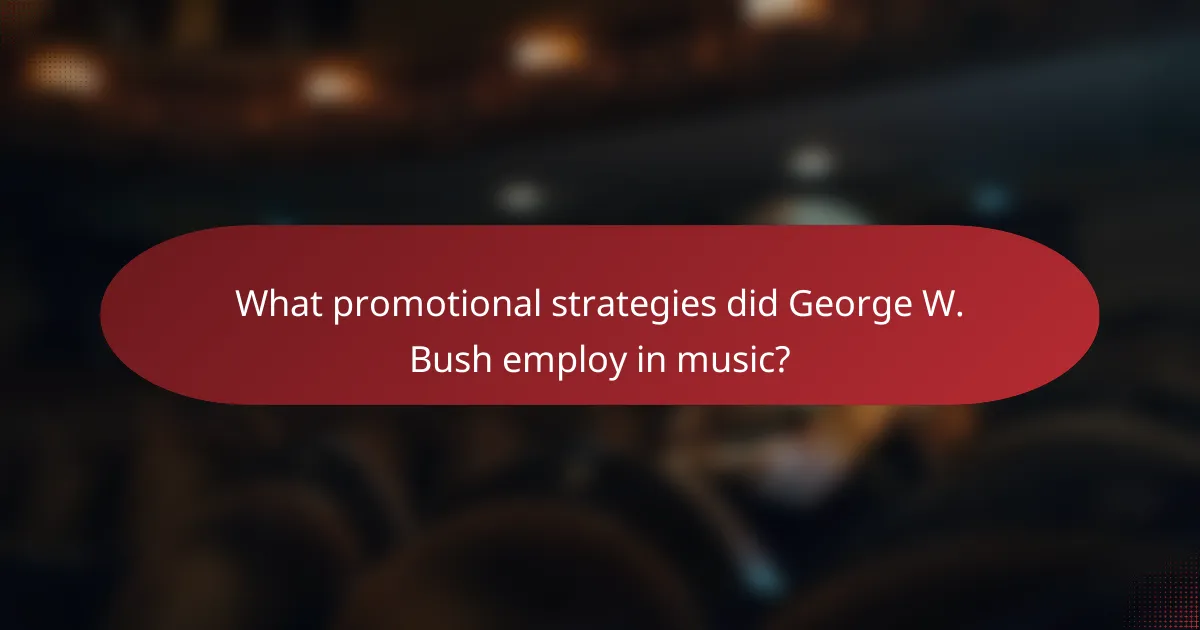
What promotional strategies did George W. Bush employ in music?
George W. Bush utilized various promotional strategies in music, focusing on media appearances, social media campaigns, live performances, and merchandise. These efforts aimed to enhance his musical brand and connect with audiences effectively.
Media appearances on music shows
Media appearances on music shows were a significant part of Bush’s promotional strategy. By participating in popular programs, he reached a broader audience and showcased his musical interests. These appearances often included interviews and performances that highlighted his personality and musical taste.
Engaging with well-known music shows allowed Bush to tap into existing fan bases, creating a crossover appeal. This strategy not only promoted his music but also reinforced his public persona as a relatable figure.
Social media campaigns
Social media campaigns played a crucial role in Bush’s music promotion, leveraging platforms like Twitter and Facebook to engage with fans directly. These campaigns often featured behind-the-scenes content, updates on new releases, and interactive posts that encouraged fan participation.
Effective use of hashtags and targeted ads helped Bush reach specific demographics, enhancing visibility and engagement. By fostering a sense of community online, he was able to create a loyal following around his musical endeavors.
Live performances at events
Live performances at various events were a key strategy for promoting Bush’s music. These performances not only showcased his musical talent but also provided opportunities for networking and collaboration with other artists. Events ranged from charity concerts to political rallies, allowing him to reach diverse audiences.
Performing live created memorable experiences for attendees, which often translated into increased interest in his music. It is essential to choose events that align with the target audience to maximize impact.
Music-themed merchandise
Music-themed merchandise served as a tangible way to promote Bush’s musical brand. Items such as T-shirts, posters, and CDs helped fans connect with his music on a personal level. Offering limited-edition merchandise during events or online sales created a sense of urgency and exclusivity.
When developing merchandise, it is important to ensure quality and relevance to the music being promoted. This approach not only generates additional revenue but also strengthens brand loyalty among fans.
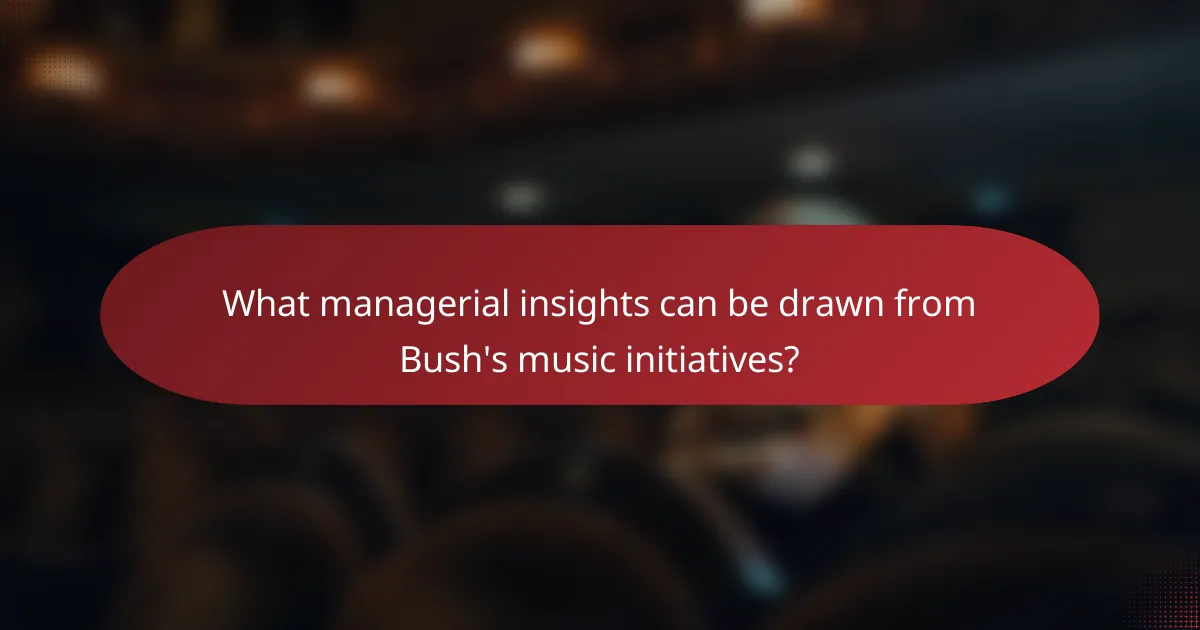
What managerial insights can be drawn from Bush’s music initiatives?
Managerial insights from George W. Bush’s music initiatives highlight the importance of strategic alignment between music and brand messaging. Effective partnerships can enhance brand visibility and foster deeper connections with target audiences.
Importance of audience alignment
Aligning music initiatives with the target audience is crucial for maximizing engagement and impact. Understanding the demographic and psychographic profiles of listeners helps in selecting the right music genres and artists that resonate with them.
For example, if the audience is primarily younger voters, incorporating contemporary artists or popular music styles can create a stronger connection. Regularly assessing audience preferences through surveys or social media feedback can guide these decisions.
Brand image enhancement through music
Music can significantly enhance a brand’s image by associating it with positive emotions and experiences. Strategic use of music in campaigns can reinforce brand values and create memorable associations.
For instance, using uplifting or patriotic songs during campaign events can evoke strong feelings of unity and pride. Brands should ensure that the music aligns with their core message to avoid any dissonance that could confuse audiences.
Cross-industry collaboration benefits
Collaborating across industries can amplify the reach and effectiveness of music initiatives. Partnerships with artists, record labels, and even other brands can create unique experiences that attract attention.
For example, a collaboration between a political campaign and a popular music festival can draw in diverse audiences while promoting shared values. It’s essential to choose partners whose values align with the brand to maintain authenticity and credibility.
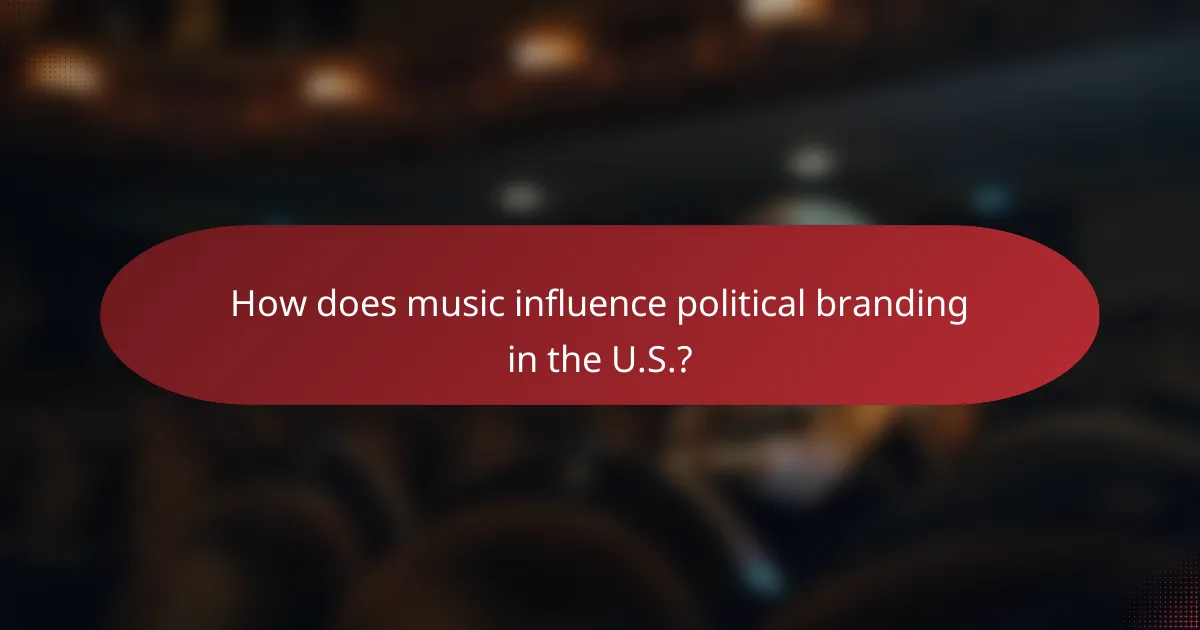
How does music influence political branding in the U.S.?
Music plays a significant role in shaping political branding in the U.S. by creating emotional resonance and enhancing the overall campaign narrative. It can evoke feelings, reinforce messages, and establish a memorable identity for candidates.
Emotional connection with voters
Music fosters an emotional connection with voters by tapping into their feelings and memories. Campaigns often select songs that align with their values or resonate with their target audience, creating a sense of belonging and shared experience.
For example, a candidate might use an uplifting anthem during rallies to inspire hope and unity, while a more somber tune could be employed to convey empathy during difficult times. This strategic use of music can significantly enhance voter engagement.
Music as a campaign tool
Music serves as a powerful campaign tool by reinforcing political messages and enhancing visibility. Candidates often use popular songs to attract attention and create a memorable brand identity, making it easier for voters to recall their platforms.
Additionally, music can be leveraged in advertisements, social media, and public events to amplify a candidate’s reach. However, it’s crucial to ensure that the chosen music aligns with the candidate’s image and message to avoid mixed signals.
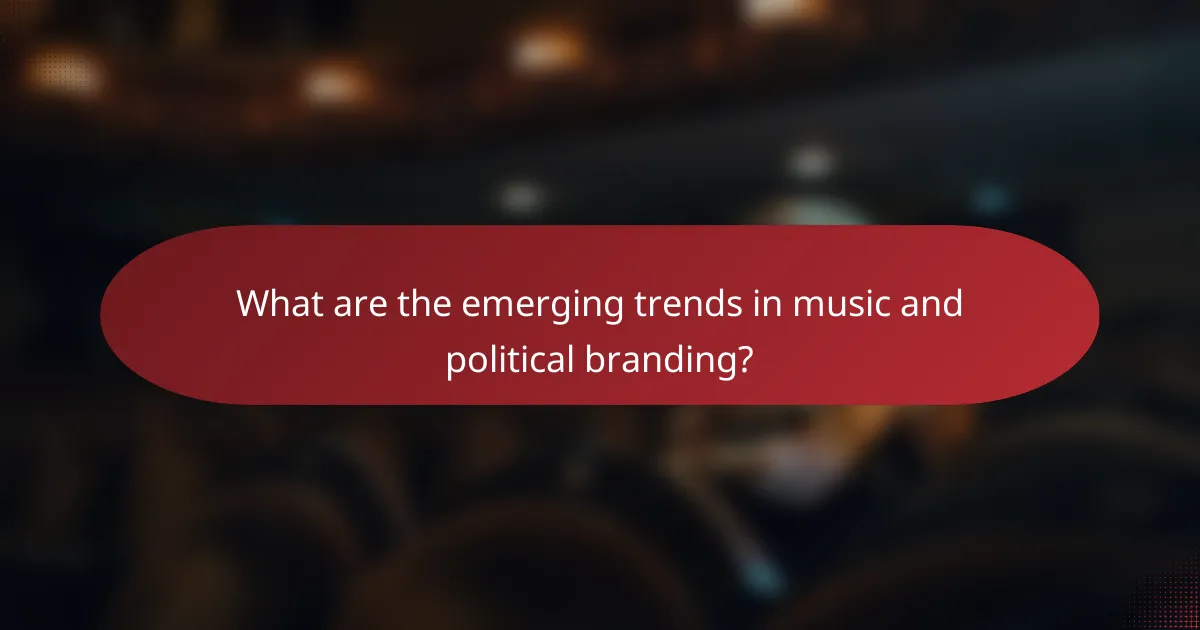
What are the emerging trends in music and political branding?
Emerging trends in music and political branding highlight the increasing synergy between artists and political figures. This collaboration often leverages music to enhance political messaging, engage younger audiences, and create memorable brand identities.
Integration of digital platforms
The integration of digital platforms is crucial for effective music and political branding. Social media, streaming services, and mobile apps facilitate direct engagement with audiences, allowing for real-time feedback and interaction. This approach not only amplifies reach but also fosters a sense of community among supporters.
For instance, political campaigns often use platforms like Instagram and TikTok to share music that resonates with their message, creating viral moments that can significantly boost visibility. Additionally, utilizing data analytics from these platforms helps tailor content to specific demographics, enhancing the effectiveness of branding efforts.
To maximize impact, campaigns should focus on creating shareable content that aligns with their political values while also appealing to the musical tastes of their target audience. Avoiding overly commercialized approaches and instead opting for authentic collaborations can lead to stronger connections with voters.



